Keeping Shavuot–The Feast of Weeks–Pentecost–Its Importance and Meaning to Messianic Believers Today
Keeping Shavuot-The Feast of Weeks-Pentecost-Its Importance and Meaning to Messianic Believers Today
For the Torah Observant Believer in Yeshua Messiah, Shavuot—The Feast of Weeks—Pentecost is about the giving and receiving of YHVH’s Torah and the establishing of the marriage covenant between YHVH and the Children of Israel. The Feast of Weeks is about the re-establishment of a broken covenant through the grace of YHVH and the outpouring of His Holy Spirit to aid fallen man in their keeping of the Creator’s instructions. Pentecost is about life and the establishing of the Body of Messiah through the atoning sacrifice of Yeshua Messiah and the infilling of the Holy Spirit.
What is Shavuot—The Feast of Weeks?
Shavuot is one of the seven-annual one of the 3-pilgrimage Feasts of YHVH. The instructions related to its keeping is found in the 23rd chapter of Leviticus. However, the origin of this set-apart day is founded upon the story behind the Creator’s giving of the commandments to the mixed multitude at the base of Mount Sinai as recorded in Exodus 19 through 24.
As the story goes, a mixed-multitude of souls, composed of the 12-tribes of Israel and various nationals from other nations, had escaped Egyptian-bondage roughly 50-days prior their settling at the base of Mount Sinai. YHVH, the Creator of the Universe, who bore this mixed multitude (with some estimates as high as 2 to 3-million souls) on eagles’ wings (Exodus 19:4) and brought them unto Himself. It was here and at this time that Father proposed a covenant between He and the Children of Israel that would be the shadow picture of an even greater covenant iteration in the years to come.
The 50-day trek from Egypt to Sinai foreshadowed the 50-day or 7-Sabbath Count (traditionally referred to as the Counting of the Omer) that begins at Wave Sheaf (i.e., Firstfruits) and culminates at Shavuot, also known as The Feast of Weeks and Pentecost in the Greek. (Read or listen to our discussion on the Day of Firstfruits.)
We find in Exodus 19 that Father proposes the establishment of a Covenant between He and Israel, whereby He would be Israel’s God and Israel would be His special and favored people above all the nation-people of the world (i.e., their Elohim) if they would hear His voice and obey His instructions (i.e., His commands). The Children of Israel agreed to the terns of this covenant and on that fateful day, at the foot of Mount Sinai, YHVH, in the midst of fire, lightening, smoke and loud shofar blowing, spoke His commandments directly to the people. Although the people were terrified by this indescribable manifestation, even to the point of demanding that YHVH speak exclusively through Moses to them so as to not repeat this terrifying manifestation, the covenant was ratified by the sprinkling of blood upon the written contract and upon the people.
A covenant is an official, established agreement between 2 or more interested parties. A blood covenant, which is what the Sinai Covenant was, required that both parties swear to abide by the terms of the contract. YHVH, because He is Creator and Elohim, certified His agreement to abide by the terms of the covenant (i.e., He would be the nation’s God and the people would reap the benefits of being a special possession of YHVH), simply by stating His Name—I am YHVH. Israel’s certification to abide by the terms of the contract was embodied in the nation’s collective, verbal affirmation that they would obey YHVH’s instructions and not worship or follow any other god. Thus, the contract—the covenant—was ratified and sealed by the sprinkling of blood upon the written contract and the people.
For all intents and purposes: this very first Shavuot was a marriage. This was a marriage between YHVH and the nation of Israel.
The Covenant is Broken
It was only but a short time after the ratification of the marriage agreement between Israel and YHVH that the people broke the covenant.
Because this was a blood covenant, if either party were to violate the terms of the contract, their life would be required of them. It goes without saying that YHVH could not—would not—violate the terms of the covenant. Israel, on the other hand, because they failed to have the Spirit of YHVH and His Torah (i.e., YHVH’s instructions) implanted in their hearts, returned to the worship of their Egyptian god (i.e., the Golden Calf) while Moses was attending to sacred business on the Holy Mountain (Exodus 32).
Despite the nation breaking the Sinai Covenant, the Almighty continued to honor the covenant. Israel cheated on her spouse YHVH. Yet YHVH did not put Israel, His bride away immediately; at least not until many centuries later when Israel delved so deep into idolatry that they could no longer hear the voice of YHVH and had completely turned their back upon their Elohim. That’s when YHVH divorced His bride Israel and the nation was left to suffer through a severe fracturing of the nation into two, followed by several usurpations, exiles and captivities at the hands of pagan nations and rulers.
The New (Renewed) Covenant
The Father knew that His people would break the marriage covenant from the very beginning. Thus, He set into motion a plan that would re-invigorate that broken covenant and re-establish the nation of Israel (both Houses of Israel—Judah and Israel) back to her favored state as His chosen people. This re-established covenant would be the Sinai Covenant on steroids. For not only would the Father bring back the original covenant to be followed by a reconstituted nation of Israel, it would be extended to the nation peoples of the world if they too agreed to the terms of the agreement. But Father did not stop there. Knowing the inherent problems His people originally had keeping His instructions, He would give His children the help they needed to keep His instructions and to ensure their success in staying in covenant with Him. This He would accomplished through the outpouring of His Holy Spirit upon His elect. Thus the Creator of the Universe’s presence would be within each one of His chosen people, and that Holy Spirit would inscribe Torah—Abba’s instructions—upon each and every heart and mind.
Of this New Covenant, the Prophet Jeremiah wrote:
“Behold, days are coming, declares YHVH, when I will make a new covenant with the house of Israel and with the house of Judah. Not like the covenant which I made with their fathers in the day I took them by the hand to bring them out of the land of Egypt. My covenant which they broke, although I was a husband to them, declares YHVH. But this is the covenant which I will make with the house of Israel after those days, declares YHVH. I will put My law within them and on their heart I will write it; and I will be their God, and they shall be my people” (Jeremiah 31:31-33; NASB).
This prophecy was confirmed by the Prophet Ezekiel who wrote:
“And I will give them one heart, and put a new spirit within them. And I will take the heart of stone out of their flesh and givem them a heart of flesh that they may walk in My statutes and keep MY ordinances and do them. Then they will be My people, and I shall be their God” (Ezekiel 11:19, 20).
Down Payment on the Renewed Covenant
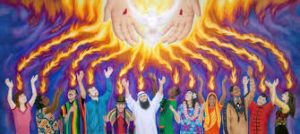
The giving of Torah at Mount Sinai was a shadow picture of the Day of Pentecost when YHVH’s Holy Spirit was poured out upon the disciples of Yeshua.
Although the New (or Renewed) Covenant has not been fully enacted, we saw the down-payment of it played out on the Temple Mount on Shavuot, just 10-days after Yahoshua commissioned His disciples on the Mount of Olives and then ascended up on high. On that fateful day, Pentecost 28 C.E., the Holy Spirit (i.e., the Ruach HaKodesh) was poured out upon the disciples of Yeshua who were attending Shavuot, gathered on the Temple Mount (Acts 2). This was the fulfillment of the “shadow picture” of the very first Shavuot at Mount Sinai. At the first Shavuot, YHVH gave the Children of Israel His Torah—His instructions—His commandments. On the Day of Pentecost in 28 C.E., YHVH gave the Children of Israel (i.e., the disciples of Yeshua HaMashiyach) His Holy Spirit. Thus we see how Torah became fully manifested and is Spirit within the people YHVH. At the time of the first Shavuot, 3,000 souls perished because Israel chose to break the covenant. At the time of Pentecost on the Temple Mount, 3,000-souls entered the Body of Messiah and into life eternal.
The Importance of Shavuot For Messianic Believers Today
Shavuot remains relevant to every Torah Observant Believer in Messiah today. Beyond the fact that we are commanded by YHVH to keep Shavuot (Leviticus 23:21, 22), we gain invaluable and crucial understanding of the New (Renewed) Covenant that Messianics are now privileged to be under. Shavuot is important in reminding Messianic Believers of the importance of keeping Torah and being in a right-relationship with the Creator of the Universe. Shavuot also serves as a prompt for every Torah Observant Believer to seek the leading and guidance of the Holy Spirit in their lives such that they live lives of their chosen status as Kings and Priests of YHVH Elohim. And Shavuot teaches the Messianic Believer that just mechanically keeping Torah is not to secure their place in the Kingdom of YHVH. Torah is Father’s house-rules that help us maintain a substantive relationship with Him. Admission into the Kingdom of YHVH is gained through the shed blood of YHVH, for salvation is a gift from Yah. YHVH’s Holy Spirit aids the believer in his/her keeping of the Creator’s house-rules in the midst of his/her living in this corrupt and dying world.
Shavuot then is about living the life that the Creator of the Universe always had in mind for His chosen people. Shavuot is living life in the Spirit.
Keeping Shavuot
The keeping of Shavuot by today’s Torah Observant Believer in Yeshua Messiah is pretty simple. We find in Leviticus 23: 21 that Messianics are to:
- Make a proclamation on Shavuot; such that believers are to extol the glories of the Creator and speak to others of YHVH’s Word.
- Have a holy convocation; such that believers come together (e.g., fellowships and congregations and assemblies) for the reading of Scripture and the breaking of bread.
- Perform or conduct no servile or laborious work.
With the Temple in Jerusalem no longer in existence, Messianics can not truly keep Shavuot as one of the 3-pilgrimage Feasts of YHVH and as instructed in Torah (Exodus 23:14-17; Deuteronomy 16:16). However, under the auspices of the renewed covenant, the believers’ bodies have replaced the Temple proper as the dwelling place of YHVH (1 Corinthians 3:16; 6:19). Thus, wherever 2 or 3 have gathered together in their Master’s Name, there He will be in their midst (Matthew 18:20).
Thus every Torah Observant Believer in Yahoshua Messiah is obliged to keep Shavuot in Spirit and in Truth. The actual method for keeping the Feast of Weeks is strictly between the individual believer and YHVH (Colossians 2:16, 17; Romans 14:5).
Faithfully,
Rod and Hilary
When Evil is Considered Good–The Hypocritical, Evil and Demented Mindset of America Today
What are the challenges facing today’s Torah Observant Disciple of Yahoshua in America Today?
The Unsilenced Women of the Bible-From Torah to the Conversion of Paul-Part 7 of the Paul and Hebrew Roots Series
The Pauline Passages of Question So as to re-establish or restate the issue at hand as it relates to Paul’s views about women in the Body and Assemblies of Messiah, the primary passage in question is as follows: “Let your women keep silence in the...
Parashat Mishpatim Judgment-Property and Love of Neighbor
This Week's Torah Reading In continuing my travels through this week's Torah Reading, I came upon Exo. 21:28-36. I found endless truths and spiritual applications that I am so happy to share with you today. The Consequences of Negligence This passage in a narrow sense...
Parashat Mishpatim Judgment-Murder-Abortions-Sanctuary
Timeliness of This Week's Torah Reading This week’s Torah Reading could not have been more timely. And I was compelled to respond in the wake of the news we’ve received over the last couple weeks regarding the legalization of late term abortions on demand. And just...
Parashat Mishpatim or Judgments-Debt and Slavery
Concerning the Treatment of Slaves by Hebrews The first portion of this week's Torah Reading deals with the issue of Hebrews owning slaves; particularly Hebrew slaves (Exo. 21:1-11) . According to this passage, if a Hebrew acquires a Hebrew slave, they would serve...
To Call or Not Call on the Name of the LORD
What Does it Mean? What does it truly mean for a would-be disciple of Jesus Christ (ie., Yahoshua Messiah) to call on the Name of the L-rd? Is it simply an utterance whereby the would-be disciple utters or invokes the actual Name or Title of the Divine One? Or is it a...
Paul-Emancipator or Subjugator of Women-Part 6 of the Paul and Hebrew Roots Series
This is Part 6 of our multi-episodic series on Paul and Hebrew Roots. This installment is entitled: “Paul: Emancipator or Subjugator of Women.” I Corinthians 14:34, 35, and 1 Timothy 2:11,12 have long challenged my sensibilities and understanding of how women are to...
No Pagan Links to Catholicism and Christianity
Pagan Links to Catholicism and Religion in Doubt I have, of late, become somewhat concerned over what I see as growing support by a good many leaders within and without our Faith for there being no pagan links to Catholicism and Protestant Christianity. And how are...
Paul Opposing God On Issue Of Circumcision?
A Matter of Circumcision or No? As I was watching Kenny Russell's (Bulldozer Faith) most recent Sabbath teaching entitled "Press On!," the text of which he based his message being Philippians 3, I became fixated on verses 2 and 3 of that chapter. It is here that Paul...
My Last Word on the Cepher Bible and the Divinity of Yeshua–At Least Till Next Time
Why Discuss the Cepher Bible Yet Again So I elected to do a rather quick reiteration--albeit last word on the Cepher Bible and the Divinity of Yeshua. At least, until the issue comes up, let's just say. Over the last year or so I've received a number of inquiries...

Paul on Aggadah–Part 5 of Paul and Hebrew Roots Series
Paul on Aggadah—Part 5 of the Paul and Hebrew Roots Series Let us quickly recall from Part 4 of this series that Aggadah is that unseen/invisible aspect of our lives that prompts or influences or even controls our behavior; in particular,that inward motivation, zeal,...
The Meaning Behind The Recent Dedication of an Altar in Jerusalem
If you’ve been keeping up with world news of late, you may know (or not) that the resurrected Great Sanhedrin, headquartered in Jerusalem, sanctioned a Levitical offering of a previously sacrificed lamb upon a practice altar somewhere in Jerusalem. (Yes, there really...
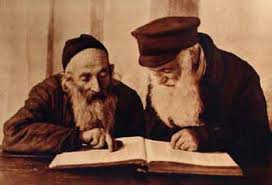
Paul on Halakhah and Aggadah–Part 4 of the Paul and Hebrew Roots Series
Paul on Halakhah and Aggadah Last installment, or Part 3 of this series, I introduced to you the Hebrew concept of Halakhah. In that discussion, I attempted to not only define what halakhah meant, but I also attempted to convey the significance of...
A Biographical Portrait of the Pre-Converted Paul and Halakah–Part 3 of the Paul and Hebrew Roots Series
Review of Parts 1 and 2 of this Series Over the course of the last two installments of this series, we have been laying the groundwork for assembling our portrait of the Apostle Paul prior to his conversion. In the first two-installments we discussed: Why it is...
To Fellowship Or Not Fellowship
A Nagging Question To fellowship with a group of Sabbath-Feast-keepers or not has been a question plaguing me for the last couple weeks. A couple months ago we were invited to fellowship with this group. Now, know that this is NOT a question whether to participate...
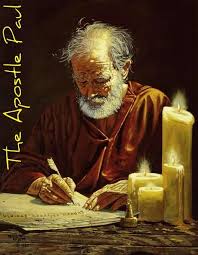
Paul-The Man Beneath the Apostleship–Part 2 of the Paul and Hebrew Roots Series
If you've not already done so, I invite you to listen to or read Part 1--Paul, the Man Beneath the Apostle, before moving in to this installment. Apparent Biblical Contradictions and Controversies Before we address the person of Paul straight-on today, I...

The Apostle Paul–Part 1-The Man Beneath the Apostleship
My Goal For This Series Thank you for joining me for Part 1 of this multi-episodic series on The Apostle Paul. This being part-one of the series, we'll lay the ground-work for understanding the man beneath the apostleship. In succeeding installments,...
Who or What is a Messianic Torah Observer?
Inquiring Minds Want to Know I've received a number of email inquiries over the last couple years from various listeners and readers asking the meaning of the title "The Messianic Torah Observer." Allow me to break this bad-boy down for you. To begin with, I...
The Fall Feasts of Yah-The Feast of Tabernacles-The Feast of Sukkot
And greeting fellow Saints of the Most High Elohim. Welcome to The Messianic Torah Observer. I'm Rod Thomas, your host. And as always, it is my sincerest hope, trust and prayer that this installment of the program finds you, your families and fellowships well and...
The Fall Feasts of Yah–The Day of Atonement–Yom Kippur
The Fall Feasts of Yah and the Torah Observant Disciple of Yeshua As Torah Observant disciples of Yahoshua Messiah we are truly blessed to have the joyous elements of our beloved Faith to keep us focused on the mark of the high calling of Messiah. And as I said...
The Fall Feasts of Yah-Trumpets-Yom Teruah
The Fall Feasts are upon us and the Day of Trumpets (Yom Teruah) has at our doorsteps. What significance do the Fall Feasts and the Day of Trumpets hold for Torah Observant Believers in Messiah? What follows is a brief overview of the Fall Feasts of Yehovah and a...
Tithes and Offerings Related to Torah and Messianics
This week’s Torah Reading touched upon the Firstfruits’ offering and the Tithe. The Firstfruit Offering or Tithe (Dt. 26:1-11) The issue and topic of giving offerings and tithing are always controversial, both within and without our Faith Community. As Torah Observant...
Messianics Engaged in Political and Social Activism
A speaker at a recent prophecy conference denounced apathy in the body of Christ and demanded Christians wake-up from their apathy and engage in political and social activism, so to speak. Given the mixed Faith Communities represented at this conference,...
Torah Portion Re’eh–See–I Set Before You a Blessing and a Curse
Torah Portion Re'eh--(See) I Set Before You a Blessing and a Curse--11:26-16:17 This week's Torah Reading, entitled “Re’eh” or “See—I Set Before You a Blessing and a Curse,” is found in Deuteronomy 11:26-16:17. I found this reading to be rich in...
Torah Portion ‘Ekev–On the Heel Of–Because
This week's Torah Portion (i.e., Reading/Parashat) was entitled, 'Ekev--On the Heel Of--Because. It is found in Deuteronomy 7:12-11:25. [If you follow the Torah Portions or Readings, I invite you to check out my post entitled, "Hebrew Roots and Torah Portions--Are...
Torah-Keeping–When it is Practiced in Sin
This Week's Torah Reading--D'varim This week's Torah Reading was D'varim. A section of it addressed our eventual abandonment of Father's Torah after we were established in the land. As a result of our abandonment of Torah, the land would be overrun by Gentiles and we...
As It Was In The Days of Noah
Do recent advancements in DNA manipulation and Artificial Intelligence portend the return of Yahoshua Messiah? Are they elements of modern day spin-offs to the Days of Noah? Each week it seems, we receive more and more disturbing news about the existential dangers...
Sacred Oaths and Vows–The Wages of Sin–The Spoils of War
In today’s post, I wish to reflect upon elements of this week’s combined Torah Portions entitled Mattot (or Tribes) and Masei (or Journeys). This Portion ends our journeys through the Book of Numbers and sets the stage for our historic and long-awaited conquest of the...
The Red Heifer–Parashah 39–Hukkat–Numbers 19
I pray that you had a meaningful Sabbath Rest. This week's Torah Portion was yet again an amazing journey into the Things and Ways of YHVH that defy anything that humanity could ever imagine. This 39th Portion addresses the "Mystery of the Red Heifer," which is a...
Hebrew Roots and Torah Portions–Are Torah Portions Valid for Messianics
I have always been one to think: if one person has a question on a particular topic or issue that I have posted on this program, it stands to reason that there are others out there who have the same question. Recently I received feedback from a dear listener of this...
Messianic Lessons From The Revolt of Korah
The Players of this Torah Portion The players of this passage are: Moshe, Aharon (Cohen Gadol); Korah (a Levite of which he and his family and lineage served with the Aaronic Levitical Priesthood--he was not a priest but a most blessed assistant and servant to YHVH);...
Impediments to our Faith-Absence of Discipleship and the Holy Spirit Operating in the Lives of Believers (Part 2)
It goes without saying that many of us have a difficult time grasping the things of YHVH, especially when we first transition into our Faith Community. It’s one thing to decide to give up pork and shell fish and to start worshiping on Sabbaths as opposed to...
Yeshua Messiah (aka Jesus Christ) as our Apostle and High Priest
During my morning studies today I was led to pick up where I left off from this past Sabbath's Brit HaDashah reading that is found in Hebrews 3:1-6. Interestingly enough, roughly 1-1/2 to 2 hours after beginning the study, I had not progressed beyond verse one. For...
Messianics Dedicated to Service
This Week's Torah Portion-Beha'Alotekha-The Menorah On this Shabbat, I was blessed to read and reflect upon this week's beautiful Torah Portion entitled Beha'Alotekha-The Menorah. The portion was contained in Numbers, chapters 8 through 12, And I don't know if it's me...
Impediments to our Understanding Things of the Faith–Part-1–Understanding the Bible
Many of us have a hard time grasping the things of YHVH. There seems to be impediments to our receiving, understanding and applying the things of our Faith. Indeed, there are many impediments that we could explore. However, for this post we will consider those...
The Torah Observant Believer in Yeshua Messiah as Slave
Paul opens his letter to the assembly of Messianic Believers in Rome with an introductory bio of himself. He writes: "Paul, a bond-servant of Christ (i.e., Messiah) Yeshua, called as an apostle, set apart for the gospel of God (i.e., Yah)..." (Romans 1:1; NASB). Other...
Feast Pilgrimages to Israel–Messianic Lessons Learned from Shemitah
Pilgrimages to Israel for the Feasts of YHVH Question Posed: Are We Suppose to Conduct a Pilgrimage to Israel Today? The question has been posed and sadly has been incorrectly answered some: Are we obliged to keep Unleavened Bread, The Feast of Weeks...
Living a Life Beyond the Norm–Lessons Learned from the Levitical Priesthood
Organizations establish standards by which its members' job performances are judged. There are set standards and job performance levels that separate an average from an exceptional worker. A member's job performance when compared to those standards may determine that...
Biblical Illiteracy Behind the Anti-Hebrew Roots Agenda
Is Biblical Illiteracy behind the Anti-Hebrew Roots Agenda these days. In this post I reflect upon a recent experience I had on Facebook that suggested to me that Biblical Illiteracy may, in part, be behind the animus Christians have towards our Hebrew Roots/Messianic...
A Call for Unity in the Body of Christ/Messiah
By virtue of our role as disciples of Yahoshua Messiah (Jesus Christ), we are called to be a united and unified body of believers in every respect. Just as Master was united with His Father, we too must be united with the Father, our Master and with one...
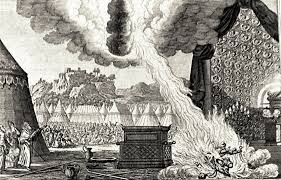
When Tradition Eclipses Torah
My Torah Portion Observation of the Week I was profoundly moved by the section of this week’s Torah portion that recorded what on the surface seemed the very harsh and violent encounter we had with YHVH. It was Parashah 26: Sh’mini, Eight and I wish to briefly...
Day of Firstfruits and Keeping the Sabbath Holy
Keeping the Day of Firstfruits The Day of Firstfruits is a little known or publicized feast in our Faith Community. Firstfruits is also referred to as Yom haBikkurim (Hebrew) and the Wave Sheaf Offering. It is sandwiched into the week of...
Our First Passover–A Survey of Exodus 12 and 13 and How it Applies to Us Today
Passover Like All Feasts are Shadows of “Good Things to Come” Passover and the Feast of Unleavened Bread, embodied and explained to us in Father's Torah, was aptly described by the writer of the Book of Hebrews as "Shadows of Good Things to Come:"...
Select Your Passover Lamb
I'm Reminded I’m reminded when looking over our copy of the Hebrew Observational Calendar that today is the day that we would select the unblemished animal of the first-year that would serve as our paschal lamb. Choosing a Lamb Today Certainly, today, the vast...
Observing and Guarding the Month of Aviv–How to Observe and Guard the Month of Aviv
Torah Instruction to Guard In Deuteronomy 16:1-3 Abba instructed us to “observe (i.e., shamar—guard) the Month of the Aviv,” and keep the Passover unto YHVH our Elohim.” Because in the Month of the Aviv YHVH brought us forth out of Egypt by night. What...
Torah Portions and the Body of Christ (Messiah)
My Love and Concern of Torah Portions I personally love the Torah Portions system for a number of reasons, including reasons associated with connecting with other like-minded Messianic believers who appreciate the Torah Portion system as well. Certainly, there are few...
All Things Are Lawful For Me
"All Things Are Lawful For Me..." (The Apostle Paul to the Corinthian Assembly of Messianic Believers) Well, I’m going to take a slight break from our series on the plurality of the Godhead series to tackle one of the Apostle Paul’s many difficult passages that the...
Are the Father and Son the Same Person (Part 2)–Genesis 1 and Elohim Proof in the Trinity or Not
The question has been posed countless times: Are the Father and the Son one and the same Person? In this second part of the series we reflect on Genesis chapter one, specifically the term/title Elohim in our search for an answer to this question. Pluralists contend...
Are the Father and the Son the Same Person?
The Billion Question In this installment of Sabbath Thoughts and Reflections we will begin tackling one of the biggest and most frequently posed questions by members of our Faith Community: Is the Creator—God—Yahovah/Yahweh/Yahuah and the...
Five Things Every Believer Should Consider About Christmas (104)
Preface Let's consider five things every Messianic should know about Christmas. Indeed, there are numerous other things to consider beyond this simple list of five, but these five constitute a great starting point. Christmas now being upon us, I felt that I would be...
What Does Climate Change Really Mean From A Hebrew Roots Perspective?
Global Warming/Climate Change Make the News Anyone who has kept up with the news over the last decade or so should be somewhat familiar with the subject of "global warming," recently changed to "climate change." In case this subject is a little foggy in your mind,...
Hanukkah and the Torah Observant Believer in Yeshua (Installment 103)
To Observe Hanukkah or Not Observe Hanukkah Today's Thought and Reflections topic is season appropriate and it has to do with Hanukkah and its significance to the Torah Observant Believer in Yeshua. Obviously, some of you do not observe or celebrate Hanukkah, and...
Are We Heading for Heaven or Staying on Earth When Yeshua Messiah Returns? (Installment 102)
Are We Heading for Heaven or Staying on Earth When Yeshua Messiah Returns? Question: Are We Heading for Heaven or Staying on Earth When Yeshua Messiah Returns? In keeping with our renewed aim to include a question and answer session in Sabbath Thoughts and Reflection...
Should Torah-Keeping Believers in Yeshua Celebrate Thanksgiving?
Thanksgiving and the Torah-Keeping Believer in Yeshua Messiah. In this installment, we reflect upon Torah-Keeping Believers in Yeshua celebrating Thanksgiving: Is it a terrible reminder of genocide that New World Settlers brought upon Native American Indigenous...
Understanding our Call and Purpose-The Wilderness Experience
Understanding Our Call and Purpose Through a Wilderness Experience Do you truly understand your call and purpose? Maybe you're a new to the Hebrew Roots/Messianic Faith and you have no idea where to go from here. Or maybe you've been in the Faith for a while but have...
Leaving the Hebrew Roots Faith Lured by Seducing Spirits
Leaving the Hebrew Roots Faith Lured by Seducing Spirits In this installment we reflect upon a recent Zachary Bauer posting related to folks leaving Hebrew Roots after being lured by doctrines of seducing spirits. Taken Aback I was quite taken aback after viewing a...
The 500th Anniversary of the Protestant Reformation
Netsarim/Netsari Defined The term or title Netsari and Netsarim have been making and floating about the Hebrew Roots/Messianic Faith Community for a few years now, slowly catching in popularity and distinction. The reason I use Netsari and Netsarim to refer to us as a...
Feast of Tabernacles 2017 Thoughts and Reflections
What is the Best Way to Witness to Non-Torah-Keepers? Right and Wrong Ways to Witness This is probably one the most frequently asked questions that I have received over the years, and to be honest, there is no true right answer to the question. I do believe that there...
How to Correctly Keep Yom Kippur
How to Correctly Keep Yom Kippur Believers Want to Know How to Keep Yom Kippur Correctly We have brethren in our Faith Community who are seeking Truth and want to understand when and what Yom Kippur is and how to properly observe and celebrate the day. As mature Torah...
Day of Trumpets—Yom Teruah—Rosh Hashanah—Subject to God or to the Rabbis?–STAR-95
The Calender: Friday 9-22-2017—Yom Teruah—Day of Trumpets Sunday 10-1-2017—Day of Atonement—Yom Kippur Friday 10-6-2017 through Friday 10-13-2017—Feast of Tabernacles—Sukkot Commentary: The World is Falling Apart and Coming to an End Although the Day of Trumpets is...
Overcoming the Cares of Life–STAR-94
The Cares of Life—For Some a Daily Challenge; For Others A Frequent Distraction From a general, let’s say, secular standpoint, the cares of life (or cares of this world as interpreted by some Bible translations) are the many elements of everyday...
The Bible-The Answer to Every Concern or the Ultimate Instruction Manual-STAR-92
Thoughts and Reflections Part 1: The Great Book Known as the Bible The Bible--The Holy Writ--The Word--The Word of God--The Sword--The 66-Special--The Book--The Good Book: these and many more are the descriptors and titles of arguably the most famous and well known...
Witnessing to Non-Believers-Is Keeping Torah Even Possible–Is Tithing a Burden–Does Prayer Purify Forbidden Foods–STAR-91
Thoughts and Reflections Part 1: Closing Thoughts on the Issue of Controlling Our Emotions I just want to put forth some closing thoughts on emotions and the problems that emotions can cause us in walking and living out this walk. Episodes 87 through 90, I reflected...
Controlling Our Emotions for the Work of the Gospel–STAR-90
Shabbat Shalom fellow saints in training. Greetings and blessings to you on this day that Yahuah our Elohim has made—one that we were admonished by the psalmist to be glad and rejoice in it. This is especially so given that the Sabbath is a most sacred day to us Torah...
The Rule of Emotions Over the Lives of Certain Christians-STAR-89
Part-1--The Rule of Emotions Over the Lives of Certain Christians In following up with my last Sabbath Thoughts and Reflections post (episode 88—”When Tradition Overrides Truth and Reason”), I explored how some of the traditions of the church (namely the modern...
When Tradition Overrides Truth and Reason–Sabbath Thoughts & Reflection-88
KJV Mark 7:1 Then came together unto him the Pharisees, and certain of the scribes, which came from Jerusalem. 2 And when they saw some of his disciples eat bread with defiled, that is to say, with unwashen, hands, they found fault.1 3 For the Pharisees, and all the...
Making a Case to be Holy–Sabbath Thoughts and Reflections–87
A Case for Holiness As I was conducting my Torah studies week-before-last, I came to Exodus, chapter 19. This of course, is a well-known passage of Torah to our community, for it is the place that marks that point in our history that we officially received our...
Why Aren’t We Wearing Tzitzits or Fringes?
38 "Speak to the sons of Israel, and tell them that they shall make for themselves atassels on the corners of their garments throughout their generations, and that they shall put on the tassel of each corner a cord of blue. 39 "It shall be a tassel for you 1to look at...
Post Passover–Feast of Unleavened Bread Thoughts and Reflections–STAR-85
This is Sabbath Thoughts and Reflections—Episode 85—My Post-Passover-Feast of Unleavened Bread Thoughts and Reflections Greetings fellow Saints in Training. I am trusting that this episode of Sabbath Thoughts and Reflections finds you, your families and...
Interpreting the Bible Literally and Eating Unleavened Bread for 7-Days?
Feast of Unleavened Bread--Thus Saith the LORD! As is my typical custom during this time of the Biblical Calendar year, i read and re-read Torah's account and instructions regarding the Passover. What I especially enjoy doing, though, is reading entire passages of...
One of the Greatest Passover Mysteries of the Ages Revealed-STAR-84
The Greatest Passover Mystery of the Ages is Found in the Knowledge and Understanding of Who Yeshua HaMashiyach Is. For some strange reason, a rather sizable chunk of Rooters seem to be more focused upon the mechanical observance of Passover than upon the revealed...
Operating Effectively as a Disciple of Master Yeshua Today–Episode-83
Before moving in to the focal point of this thoughts and reflections episode, I want to first touch upon one housekeeping item if you don’t mind. Last week on 3/29/2017, we began a new calendar year. We celebrated--or should have celebrated, Biblical Rosh...
Is Cooking on the Sabbath Prohibited by God and Torah-Pastors in a Credibility Crisis-STAR-82
Calendar: Just 1-1/2-weeks out from Rosh haShanah presuming the barley is Aviv and the renewed moon is sighted over the land of Israel concurrently. Rosh haShanah is the Torah Observant Believer in Yeshua Messiah's New Year Day! and signals the start of the Spring...

Identity Crisis in Hebrew Roots–Sabbath Thoughts and Reflections–Episode-81
Now then, if you will indeed obey My voice and keep My covenant, then you shall be My own possession among all the peoples, for all the earth is Mine; and you shall be to Me a kingdom of priests and a holy nation...But you are A CHOSEN RACE, A royal PRIESTHOOD, A HOLY...
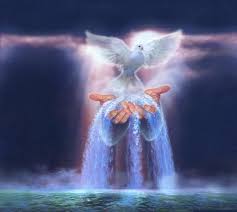
Hebrew Roots Worshiping God in Spirit and in Truth
Hebrew Roots Worshiping God in Spirit and in Truth Let's reflect upon the topic of worshiping Abba in Spirit and in Truth as it relates to our Hebrew Roots Faith. This will be part 3 of my multi-episode series on operating and walking out this walk in the Spirit. If...
Spiritual Transfer of Power–Sabbath Thoughts and Reflections–Episode-78
"Finally my brethren, be strong in Yahuah and in the power of His might. Put on the whole armor of Yah that you may be able to stand against the wiles of the devil. For we wrestle not against flesh and blood, but against principalities, against powers, against...
Israel and the U.S.-Best of Friends, Right? Sabbath Thoughts and Reflections-Episode 76
Israel and the United States--Best of Friends, Right? This is Sabbath Thoughts and Reflections--Episode 76 By now, anyone who keeps up with world events will know of the most recent United Nations Security Council Resolution. But in case you've been distracted with...
Falling in Love with Christmas all Over Again-Part 2–STAR-75
KJV Jeremiah 10:1 Hear ye the word which the LORD speaketh unto you, O house of Israel: 2 Thus saith the LORD, Learn not the way of the heathen, and be not dismayed at the signs of heaven; for the heathen are dismayed at them. 3 For the customs of the people are...

Falling in Love with Christmas all Over Again Part 1-STAR-74
Are we falling in love with Christmas all over again? This is part 1 of what i hope will be just a two part series on this issue. Christmas Posing A Crisis of Faith in the Hebrew Roots Community I believe our community is in, at a minimal, what I've chosen to call "a...
Compassion and Yeshua Messiah–Sabbath Thoughts and Reflections-73
Compassion and Yeshua Messiah Part 2 of my Divinity of Yeshua Messiah Series--Sabbath Thoughts and Reflections Episode 73 In this episode of Sabbath Thoughts and Reflections, I wish to examine the the Godly attribute of Compassion and Yeshua Messiah. This topic stems...
The Divinity of Yeshua Messiah-Part 1
The Divinity of Yeshua Messiah-Part 1 Sabbath Thoughts and Reflections-72 Visitor’s Comment on the Cepher Bible Episode A few weeks ago I received a comment from a visitor to themessianictorahobserver.org that I felt needed to be aired and discussed. The commenter was...
Sharing Hebrew Roots with Christians—The Lunar Sabbath Debacle—America Spotlighted in Deuteronomy 32
Sabbath Thoughts and Reflections Episode 70 Day of Atonement Just a day or so out from Day of Atonement (aka Yom Kippur)—a most solemn day of rest for our Faith where we fast and pray and reflect upon our lives and the past year. Prophets sight this Day of...
Are We Seekers of God or Torah Observers?
Sabbath Thoughts and Reflections-Episode-69 A Probing Question For this episode of Sabbath Thoughts and Reflections, I have been led to share a comment left by a visitor to our website. That comment--more a question than a comment I should say--seemed to call into...
Rejected by Family and the Hebrew Gospel of Matthew–Sabbath Thoughts and Reflections-68
Rejected by Family and the Hebrew Gospel of Matthew Sabbath Thoughts and Reflections-68 Master Yahoshua was rejected by the very people He grew up. All indications are that Master's hometown rejected His Messianic works and wisdom because they could not get past His...
A Broken Heart and Contrite Spirit Gets God’s Attention–Sabbath Thoughts and Reflections-67
A Broken Heart and Contrite Spirit Gets God's Attention A Question of Numbers--Affiliation--Religion--Or Something Else “With all the billions of people in the world—believers and non-believers alike—what makes me stand out from all the others? What makes...
Hollywood and Atheism
Hollywood and Atheism Atheism is Alive and Well in Hollywood I came across an article the other day that just solidifies for me how shallow some of the more elite of us are in our western society. When it comes down to the question of "do you believe in God?" I...
How Must We Deal with a World that is in Chaos–Sabbath Thoughts and Reflections–Episode 66
How Must We Deal with a World that is in Chaos? Sabbath Thoughts and Reflections—Episode 66 Vanity of Vanities for all is Vanity! Well, unless you’ve been completely off the grid—that is, in complete seclusion without access to news of any sort—you are no doubt...
Will the True God of the Old Testament Please Stand-Up–Sabbath Thoughts and Reflections–65
Will the True God of the Old Testament Please Stand-Up? The so-called God of the Old Testament: This is somewhat of the focus of this episode/post. As I completed chapter 24 of Deuteronomy in my Torah studies this week, I came to realize that we serve a most loving...
The Costs of True Discipleship–A Hebrew Roots Perspective–Sabbath Thoughts and Reflections–64
The Costs of True Discipleship A Hebrew Roots Perspective Sabbath Thoughts and Reflections--Episode 64 Opening Passage: 28 For which of you, desiring to build a tower, doth not first sit down and count the cost, whether he have wherewith to complete it? 29 Lest...
What Must Our Focus Be in Hebrew Roots–Sabbath Thoughts and Reflections–63
[podcast src="https://html5-player.libsyn.com/embed/episode/id/4475152/height/90/width/480/theme/custom/autoplay/no/autonext/no/thumbnail/yes/preload/no/no_addthis/no/direction/forward/render-playlist/no/custom-color/88AA3C/" height="90" width="480"] What Must Our...
The Mixing of Seeds in our Faith–Sabbath Thoughts and Reflections–Episode-62
[podcast src="https://html5-player.libsyn.com/embed/episode/id/4455245/height/90/width/480/theme/custom/autoplay/no/autonext/no/thumbnail/yes/preload/no/no_addthis/no/direction/forward/render-playlist/no/custom-color/88AA3C/" height="90" width="480"] The Mixing of...
The Value of Life According to Yahovah–Sabbath Thoughts and Reflections 59
[podcast src="https://html5-player.libsyn.com/embed/episode/id/4423863/height/90/width/480/theme/custom/autoplay/no/autonext/no/thumbnail/yes/preload/no/no_addthis/no/direction/forward/render-playlist/no/custom-color/88AA3C/" height="90" width="480"] The Value of Life...
Pope Francis and the Spirit of Anti-Messiah–Sabbath Thoughts and Reflections–Episode 58
[podcast src="https://html5-player.libsyn.com/embed/episode/id/4405449/height/360/width/480/theme/standard/autoplay/no/autonext/no/thumbnail/yes/preload/no/no_addthis/no/direction/forward/" height="360" width="480"] Pope Francis and the Spirit of...
Counting Omer and a Question of Circumcision–Sabbath Thoughts and Reflections Episode 57
[podcast src="https://html5-player.libsyn.com/embed/episode/id/4384332/height/360/width/480/theme/standard/autoplay/no/autonext/no/thumbnail/yes/preload/no/no_addthis/no/direction/forward/" height="360" width="480"] Counting Omer and a Question of Circumcision...
The World Loves Baal (aka Nimrod)–Sabbath Thoughts and Reflections–Episode 56
The World Loves Baal (aka Nimrod) Sabbath Thoughts and Reflections--Episode 56 In this episode of Sabbath Thoughts and Reflections, I reflect upon the realization that the world loves Baal (aka Nimrod). This comes to mind in light of a couple YouTube videos that I...
10-Key Teachings of Yeshua Messiah Leading Up To Passover–Sabbath Thoughts and Reflections 55
10-Key Teachings of Yeshua Messiah Leading Up To Passover Sabbath Thoughts and Reflections--Episode 55 The week leading up to His sacrifice on the execution stake, Yeshua Messiah delivered a number of key teachings to us, contained in the Gospel Record. I selected 10...
Purim–The Providence of God–Sabbath Thoughts and Reflections Episode 54
Purim--The Providence of God Sabbath Thoughts and Reflections--Episode 54 In Purim-The Providence of God: Then Mordekai commanded to answer Hadassah: “Think not with yourself that you shall escape in the king’s house more than all the Yahudiym. For if you altogether...
Purim–Mourning in Sackcloth and Ashes–Sabbath Thoughts and Reflections 52
Purim--Mourning in Sackcloth and Ashes Sabbath Thoughts and Reflections 52 Well, we can say that we’re still in the Purim season as we work through the latter half of this Adar Bet—the 13th Month of the Biblical Calendar year—and I would refer you to STAR...
Is the Hebrew Roots of the Christian Faith in a State of Crisis? STAR 50
Is the Hebrew Roots of the Christian Faith in a State of Crisis? Sabbath Thoughts and Reflections Episode 50 Well, I have to tell you, I was hard-pressed and set to continue with the Purim series for this posting when I got tangled up with thoughts on the...
What do you Mean the Barley is not Aviv? Sabbath Thoughts and Reflections 49
GUARD the month of Aviyv, and keep the Pecach unto Yahovah your Elohim: for in the month of Aviyv, Yahovah your Elohim brought you forth out of Mitsrayim (that is Egypt) by night. (Deuteronomy 16:1) as I am publishing this episode, which I believe to be a very...

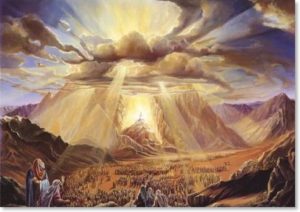

0 Comments